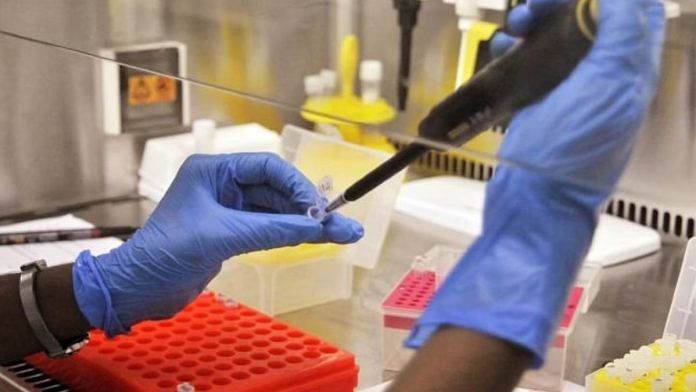On 25 January 2024, the United States’ National Institutes of Health announced a $390 million programme to develop and expand the use of human-based technologies in medical science. Traditionally, biological research and development of drugs have relied on animals to understand and assess whether new drugs would have the desired result in the human body without producing any side effects. This strategy was the norm in an era where there were few, if any, substitutes to study human systems.
However, with the sequencing of the human genome and large leaps in our understanding of biology over the last few decades, it has become clear that there are critical differences in the genomes of humans and other animals. Genetically, for example, mice and humans respond very differently to infections or stress. Humans aren’t 70-kg mice; predicting human biological responses by looking at mice and other species can have deep pitfalls.
Hurdles in drug development
The current process of developing new drugs involves testing shortlisted compounds on various animal models such as mice, rabbits, etc., to check if they are safe and effective. If the candidate drug shows promising results in animals, it is frequently advanced to human clinical trials. However, almost 90 per cent of drugs that show promising results in animals in the laboratory fail when tried on humans. In some instances, the drugs can exhibit harmful side effects, partly due to the inherent differences in how drugs perform in humans and animals.
In addition, our current approaches are extremely time and money-intensive. The average cost of bringing a single drug from the lab to the market is now $2.6 billion, and the process can take up to 10 years. This has created powerful incentives across the globe for scientists and policymakers to develop methods that can lead to faster and more effective drugs for humans.
Over the last decade, this focus has produced an array of laboratory or computer-based systems, broadly classified as Novel Approach Methodologies or Non-Animal Methodologies that aim to mimic human biology more closely. For example, organoids are 3D millimetre-sized organ-like structures that mimic certain aspects of human organs. Similarly, organs-on-chip are AA-battery-sized chips lined with human cells that recapitulate certain elements of function and activity characteristics of a human organ.
With the help of these technologies, scientists can re-create critical parts of an organ system to assess the effects and side effects of potential new drugs. These methodologies are being touted as the next frontier of drug development and provide a window into the workings of a human organ.
To propel their developments, several countries have announced ambitious policy and funding initiatives. NIH’s recent programme builds on $100 million in funding initiated in 2012, which led to the development of a lung-on-a-chip model to study respiratory diseases including Covid-19, and miniature heart and kidney models used to study organ damage and disease.
The NIH-funded tissue chips were also taken to the International Space Station to help scientists investigate the effects of microgravity conditions in space on humans. Acknowledging the potential of these systems, the US government also passed the FDA Modernization Act 2.0 in December 2022, to further encourage the use of human-based methods to test drug safety and efficacy.
Also read:
India’s response
India has responded to this global trend with its own funding and research initiatives. In 2019, the Indian Council of Medical Research (ICMR) produced a roadmap to support human-based technologies in experimentation and drug development. The white paper proposed several recommendations, including establishing ‘Centers of Excellence’ to develop this interdisciplinary field. The Department of Biotechnology (DBT) also released a funding call last year to support the development of more relevant models for screening new drugs.
In addition, the Ministry of Health and Family Welfare produced an amendment to the New Drugs and Clinical Trials Rules (2019) in 2022. These rules establish the tests and requirements to be performed and met in laboratory and human clinical trials before a drug is declared fit for release. The amendment now allows the use of human cell-based methods and computational tools during the testing of drugs in the lab, in addition to the use of animals.
While these policy and regulatory decisions are necessary, dedicated funding programmes with clearly defined goals to develop and build capacity for these new and emerging technologies would be equally important.
The recently released National Policy on Research and Development in Pharma and Med Tech sectors in India is designed to support self-reliance and rapid development of innovative drugs, and it would make sense to incorporate the push for non-animal technologies under the ambit of this policy.
To enable the development of these emerging methods, a policy centre, the Centre for Predictive Human Model Systems, was established at the Atal Incubation Centre (AIC) at the Centre for Cellular and Molecular Biology (CCMB) in collaboration with Humane Society International/India. The centre has developed a database of human-based technologies being developed in India which could help define the priority areas and technologies for the indigenous development and standardisation of human-based technologies.
During Covid, we were made cognisant of how humans respond very differently to diseases and drugs based on gender, age, pre-existing conditions and their genetic profile. With an increased focus on better preparedness for human health and diseases in a post-pandemic world, we need to shift away from the traditional “one-size-fits-all” approach and adopt personalised models of drug development that take into account our inherent biological differences. With sufficient research and investment, these new technologies can usher in an era of human-based or even patient-based drug development paradigms.
Countries around the world are committing to move toward more relevant technologies to mimic the complexities of human biology, and India has made a good start, with policy and regulatory decisions incentivising this field. However, we can progress more rapidly if we back this momentum with sustained public and private funding programmes.
(Edited by Zoya Bhatti)



